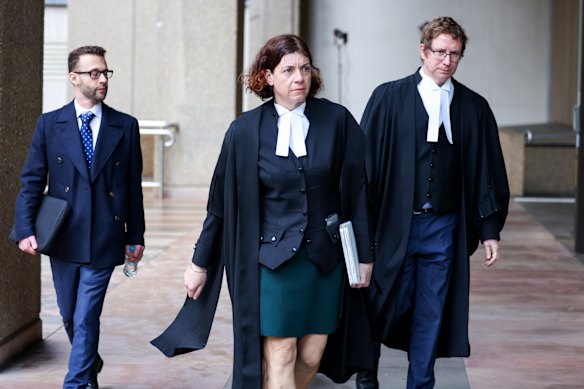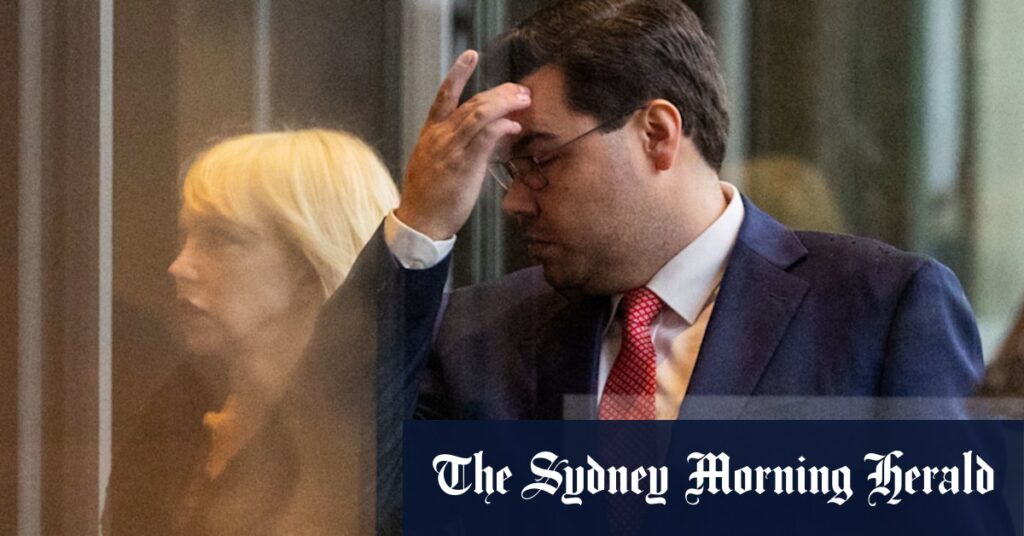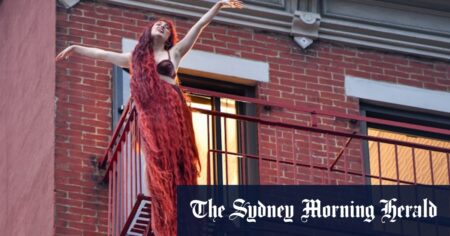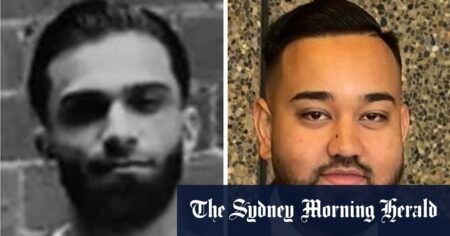She replied that it was “a submission”, and she would “leave it at that”.
In his decision last year, Lee was satisfied Ten and Wilkinson had proven to the civil standard – on the balance of probabilities – that Lehrmann raped Brittany Higgins in the office of their then-boss, Liberal senator Linda Reynolds, in the early hours of March 23, 2019. Lehrmann has always maintained his innocence.
Burrows said in written submissions, released on Thursday, that “where the evidence is inadequate, it may simply not be possible to judge the likelihood that something happened reliably enough to reach a rational conclusion one way or the other on the balance of probabilities”.
Claim of unfairness
Burrows has argued that her client was denied procedural fairness during the trial. She said on Thursday the case was a “quasi-criminal trial” and her client should have been informed of the allegations against him in the media parties’ defences with greater precision.
Burrows has said Lehrmann “is probably Australia’s most hated man”.Credit: Sam Mooy
She submitted there was a difference between what she described as the “violent rape” alleged by Ten and Wilkinson, in which Higgins said no repeatedly, and the “non-violent rape” Lee ultimately found had occurred. At times, she characterised this as a finding of a “soft rape”.
Wigney replied: “I don’t think His Honour … said anything about it being a violent rape or a soft rape. He made findings about what happened.
“The most that could be said is that some of what might have been referred to as aggravating circumstances … [were not found to have been established],” Wigney said. “Now, that’s in your client’s favour.”
Burrows said Lee should have found the rape did not occur as alleged by Ten and Wilkinson, “but instead it’s like he’s given a consolation prize”.
Justice Colvin interjected to say that the “subject matter does not merit that kind of” submission.
On Wednesday, Colvin said that he was “not sure [Lee] found a non-violent rape, and I’m not sure … that’s a concept that I understand”.
Lee was not satisfied Higgins said no during the assault. He found it was more likely than not she was passive during the rape.
However, he found Lehrmann was “hell-bent on having sex” with Higgins, had encouraged her to drink, and did “not care one way or another whether [she] … understood or agreed to what was going on”. This amounted to recklessness about consent as opposed to actual knowledge of a lack of consent.
Both Ten and Wilkinson, via their barristers Dr Matt Collins, KC, and Sue Chrysanthou, SC, submitted that the appeal court could go further and find Lehrmann knew Higgins did not consent to sex. This was because Lee had found Lehrmann knew Higgins was “very drunk”.
Wigney asked Burrows on Wednesday what she alleged had been unfair when Lehrmann had maintained he did not have any sexual contact at all with Higgins.

Sue Chrysanthou, SC, arrives at the Federal Court in Sydney on Wednesday.Credit: Edwina Pickles
“What do you expect that he would have been asked in those circumstances?” he said. “He would have kept on saying there was no sexual intercourse, wouldn’t he?”
Burrows replied that “just because he’s … given denials to the court of allegations of a violent rape” did not mean it could be assumed he would have “given the same answers” to different allegations.
Collins, acting for Ten, said this was an “astonishing submission” which could “only mean” there were circumstances in which Lehrmann would have conceded he had sex with Higgins “but argued that he thought he had her consent, or he did have her consent”.
The defamation case centred on an interview with Higgins broadcast on Ten’s now-defunct The Project program in 2021. Lee found the interview conveyed that Lehrmann, who was not named, was a rapist, but that Ten and Wilkinson had succeeded in proving this was true.
‘The so-called cover-up’
If the appeal court finds the truth defence was not established, Wilkinson has argued it should find she acted reasonably in broadcasting the rape claim.
A finding that she acted reasonably is central to the success of a fallback defence known as qualified privilege. Lee found this defence would have failed for both Ten and Wilkinson, had it been required, because their conduct was not reasonable.
Chrysanthou, acting for Wilkinson, said on Thursday that Lee had been “distracted by the so-called cover-up” when his focus should have been on the rape allegation.
This was a reference to Lee’s finding that the broadcast alleged a political cover-up of the rape claim, which he said was “objectively short on facts, but long on speculation and internal inconsistencies”.
Chrysanthou said the program did not allege a cover-up and, in any case, this was of “marginal relevance” because it was unrelated to the rape allegation.
Lehrmann’s ACT Supreme Court criminal trial over Higgins’ alleged rape was aborted in 2022 due to juror misconduct. The charges were later dropped owing to concerns about Higgins’ mental health.
Start the day with a summary of the day’s most important and interesting stories, analysis and insights. Sign up for our Morning Edition newsletter.
Read the full article here

















